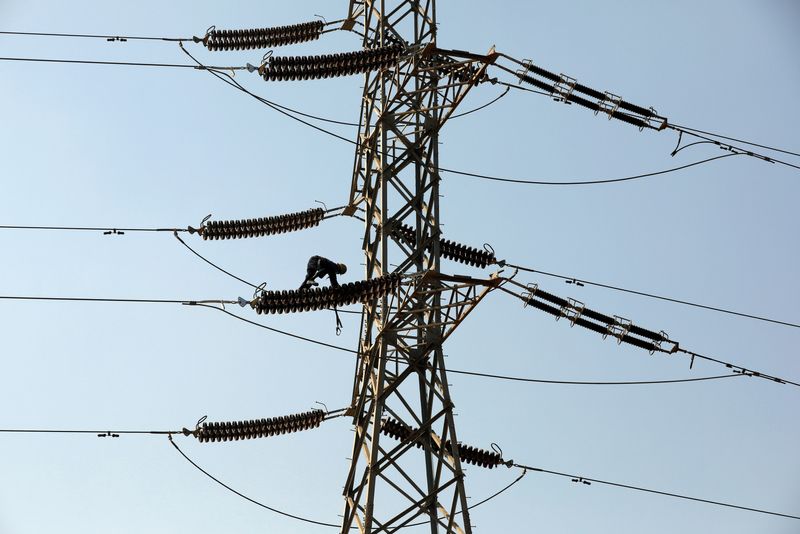By Gibran Naiyyar Peshimam and Ariba Shahid
KARACHI (Reuters) – Pakistan is renegotiating contracts with independent power producers to rein in “unsustainable” electricity rates, the head of the energy ministry said, as households and businesses reel from rising energy costs.
Rising energy rates have sparked social unrest and shuttered industries in the $350 billion economy, which has contracted twice in recent years as inflation hit record highs.
“The existing price structure of power in this country is not sustainable,” Awais Leghari, a federal minister who heads Pakistan’s Power Division, said in an interview with Reuters on Friday.
He said discussions are ongoing between energy producers and the government because “there is a clear understanding on both sides that the status quo cannot be maintained.”
Leghari stressed that all stakeholders should “give in to a certain point” – without, however, completely compromising on business sustainability – and that this should happen “as soon as possible”.
Faced with chronic shortages a decade ago, Pakistan approved dozens of private projects by independent power producers (IPPs), largely financed by foreign lenders. The incentivized deals include high guaranteed returns and commitments to pay even for unused power.
However, an ongoing economic crisis has reduced power consumption, leaving the country with excess capacity that it has to pay for.
Lacking resources, the government has incorporated these fixed costs and capacity payments into consumer bills, sparking protests from domestic users and industrial associations.
Four energy industry sources told Reuters that the changes to the requested contracts included reducing guaranteed returns, capping the dollar exchange rate and waiving payments for unused power. The sources requested anonymity because they were not authorized to speak to the media.
On Saturday, local media outlet Business Recorder said in a report citing sources that 24 conditions have been proposed for the transition from the capacity-based model to the take-and-pay model.
However, Leghari told Reuters that no new draft agreements or specific demands had officially been sent to energy companies and said the government would not force them to sign new watered-down contracts.
“We would talk to them in a civil and professional manner,” he said, adding that the government has always honored contractual obligations to investors, both foreign and local. He said contract reviews would be by “mutual consent.”
The viability of the energy sector was the focus of a crucial staff-level pact in May with the International Monetary Fund (IMF) for a $7 billion bailout. The IMF staff report emphasized the need to review power agreements.
Pakistan has already started talks on reprofiling its energy sector debt to China and negotiating structural reforms, but progress has been slow. Pakistan has also committed to ending subsidies to the energy sector.
Leghari said current rates are not affordable for domestic or commercial consumers and this is hurting growth as energy prices are no longer regionally competitive, hurting crucial exports.

He said the goal was to reduce rates for commercial users from about 28 cents per unit to 9 cents currently.
($1 = 278.45 Pakistani Rupees)





















